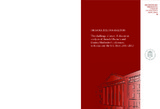The challenge of reset: a discourse analysis of Barack Obama’s and Dmitry Medvedev’s references to Russia and the U.S. from 2008–2012
Kokkuvõte
According to Laclau and Mouffe (1985), hegemony is achieved when a political force succeeds in fixing a socially important empty signifier (e.g., democracy) with specific nodal points (e.g., rule of law and human rights), so that there appear to be no alternatives to this hegemonic articulation. However, such a fixation can only be temporary. Since hegemony is inherently unstable, the hegemonic articulation needs to be constantly reproduced in various ways, to compete with other political forces articulating this empty signifier differently, in a struggle for political power. This is one of the core principles of political rhetoric.
Political rhetoric is, however, limited by discourses that have evolved throughout the history of a state and that influence its relations with other states. For instance, for politicians in Russia and the U.S, it is hard to maintain a stable partnership rhetoric about the other country because in both the other has been an important Other in the country’s identity construction for a long time. Political rhetoric is often undermined from within by other articulations, with which a speaker is in an implicit dialog, and which he/she seeks to suppress, but which often loom large at the background of what is being said. This dissertation detects exactly such instabilities and discursive struggles in the utterances of Barack Obama and Dmitry Medvedev on U.S.–Russian relations from 2008–2012, in the period when the two countries attempted to improve their dialog.
Discourse analysis, combining analytical concepts from Laclau and Mouffe’s theory with the linguistic tools from critical discourse analysis (indexicality and assumptions) performed in the dissertation demonstrated, among other things, how Obama, through his rhetoric, achieved hegemony over reset, a significant nodal point in U.S.–Russian relations at that time. The analysis also showed that the reset discourse, although successful to some degree, was ultimately dislocated because Obama could not accept Medvedev’s hegemonic articulation of reset with Russia’s and U.S.’s equal cooperation on security, since the U.S.’s CEE allies articulated such cooperation with the U.S.’s weakened commitment to protecting their security. Medvedev, in turn, could not accept Obama’s hegemonic articulation of reset with Russia’s openness to the West, since Medvedev’s project of the European Security Treaty, through which Russia would play a central role in European security, was rejected, while missile defense shield, fixed with a threat to Russia’s national security, was being, in a reviewed form, implemented despite Russia’s strong opposition.
Kirjeldus
Introduction ; 1: Evolution and analysis of political text and talk ; 1.1. Evolution of (political) rhetoric ; 1.2. Definitions of political rhetoric and discourse ; 1.3. Modes of analysis of political rhetoric and discourse ; 1.4. Discourse analysis ; 1.5. Political rhetoric in the U.S. ; 1.5.1. Research of the U.S. presidential rhetoric and discourse ; 1.5.2. Presidential rhetoric of Barack Obama (first term, from 2009–2012) ; 1.6. Political rhetoric in Russia ; 1.6.1. Approaches to research of political rhetoric in Russia ; 1.6.2. Presidential rhetoric of Dmitry Medvedev ; 2: Laclau and Mouffe’s discourse theory ; 2.1. Discourse and articulation ; 2.2. Social antagonism and the constitutive Other ; 2.3. Hegemony ; 2.4. Split subject and identity ; 3: Methodology ; 3.1. Laclau and Mouffe’s theory and critical discourse analysis ; 3.2. Indexicality ; 3.3. Assumptions ; 3.4. Analytical procedure ; 3.5. Principles of corpus selection and limitations of research ; 4: Russia and the U.S., NATO, and the West ; 4.1. Russia and the West ; 4.2. Russia and NATO ; 4.3. Russia and the U.S. ; 4.3.1. The U.S. ; 4.3.2. Russia ; 5: Empirical analysis of Barack Obama’s first term messages referring to Russia ; 5.1. Overall corpus description ; 5.2. Context 1: Global nuclear nonproliferation ; 5.2.1. Discussion ; 5.3. Context 2: Elaboration and ratification of the New START Treaty ; 5.3.1. Discussion ; 5.4. Context 3: Missile defense and NATO–Russian relations ; 5.4.1. Discussion ; 5.5. Context 4: Russia’s accession into the World Trade Organization ; 5.5.1. Discussion ; 5.6. Context 5: Discursive definition of reset ; 5.6.1. Discussion ; 5.7. Overall discussion of the empirical analysis of Obama’s first term messages referring to Russia ; 6: Empirical analysis of Dmitry Medvedev’s messages referring to the U.S. ; 6.1. Overall corpus description ; 6.2. Context 1: European Security Treaty ; 6.2.1. Discussion ; 6.3. Context 2: Elaboration and ratification of the New START Treaty ; 6.3.1. Discussion ; 6.4. Context 3: Missile Defense and NATO–Russian Relations ; 6.4.1. Discussion ; 6.5. Context 4: Russia’s accession into the World Trade Organization ; 6.5.1. Discussion ; 6.6. Context 5: Discursive definition of reset ; 6.6.1. Discussion ; 6.7. Overall discussion of the empirical analysis of Medvedev’s messages referring to the U.S. ; Conclusion



